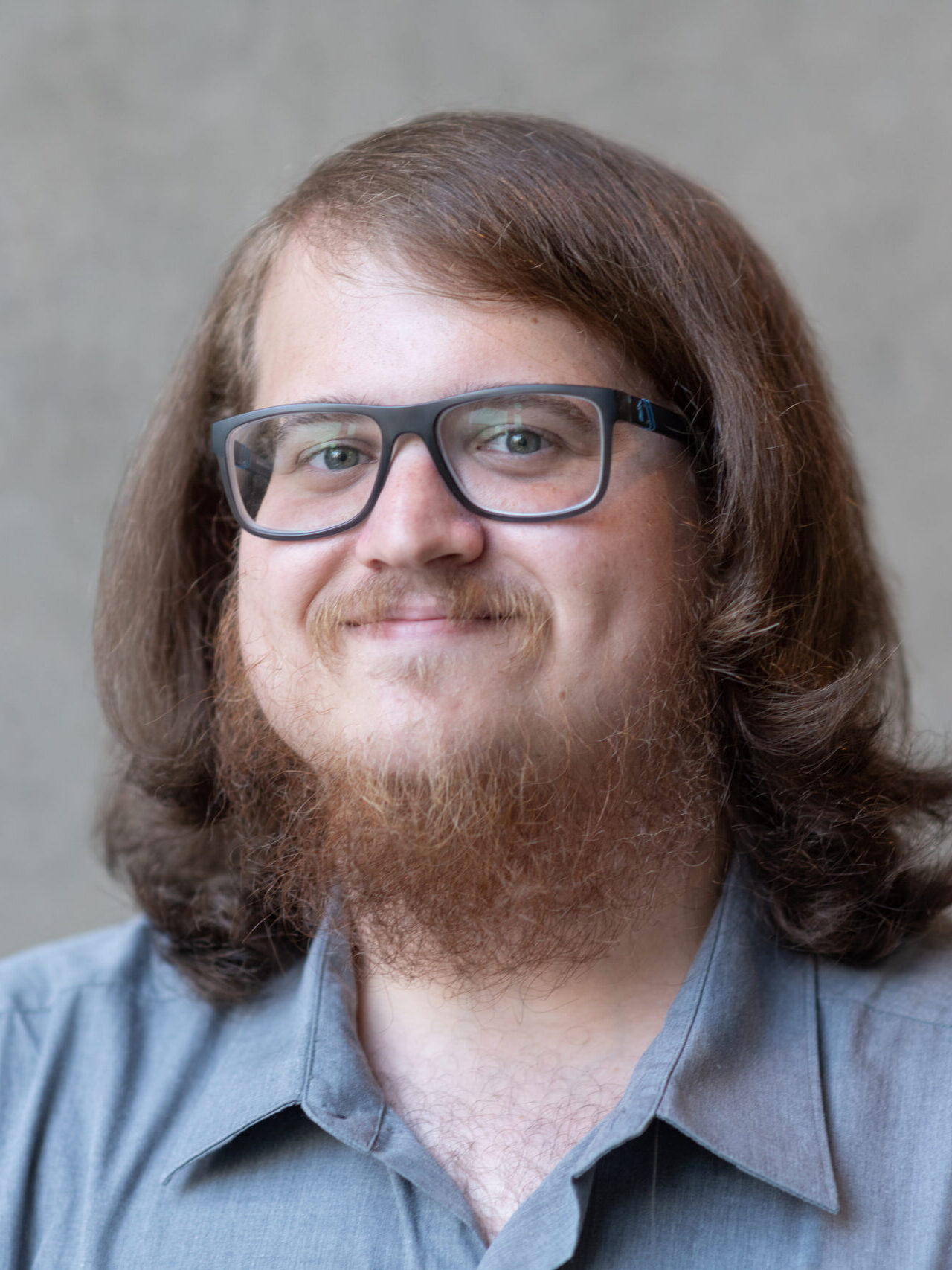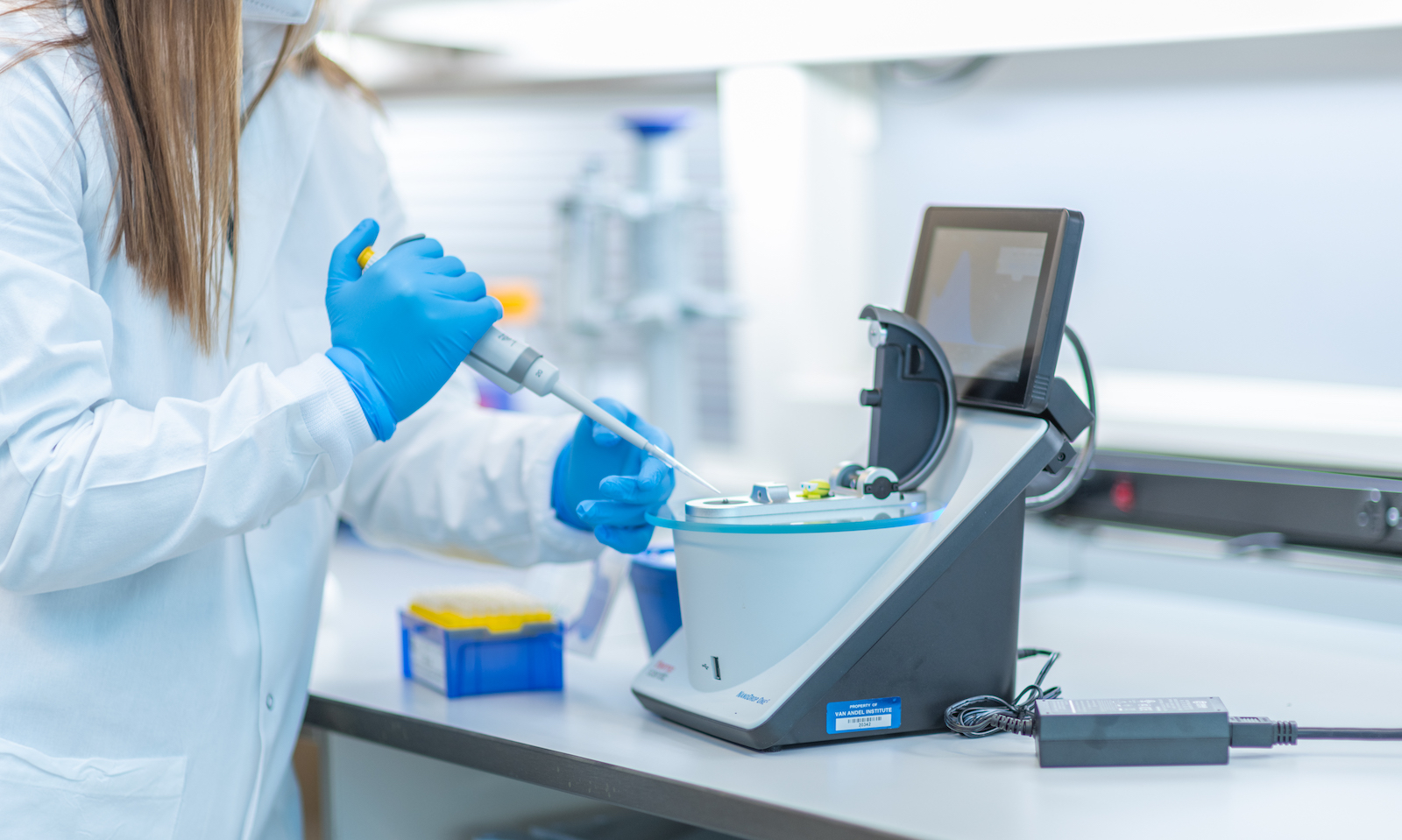As we wrap up another year, Van Andel Institute’s commitment to discovery remains strong. More than 26 years ago, the Institute was founded with the aim to make Grand Rapids a place where biomedical research and science education come together to create a brighter future for human health. 2022 brought us even closer to achieving that goal.
A future filled with medical innovations can only be nurtured through collaboration, and VAI continued to grow through the introduction of three new faculty: Epigeneticist Dr. Yvonne Fondufe-Mittendorf, neuroscientist Dr. Qiang Zhu and cancer metabolism expert Dr. Evan Lien. They have already played key roles in research, establishing laboratories that will continue to power the Institute’s work. Two other faculty members, Drs. Russell Jones and Peter W. Laird, were recently included in the 2022 Clarivate Highly Cited Researchers list, a distinction marking them as leaders in their fields.
Around the Institute, our scientists worked tirelessly to drive innovation and make discoveries that improve human health. A clinical trial supported by the Van Andel Institute–Stand Up To Cancer Epigenetics Dream Team saw promising early results from a phase 1/2 clinical trial that suggests a pair of cancer medications may increase survival in relapsed/refractory myelodysplastic syndrome compared to historical controls. Another trial, supported by VAI and Cure Parkinson’s through the International Linked Clinical Trials program, demonstrated that a diabetes drug may improve aspects of daily living and non-motor symptoms in people with Parkinson’s.
VAI scientists also developed a new technique to run circles around cancer by revealing their molecular roots, a strategy that already has uncovered new insights into melanoma and cancers of the esophagus and stomach. Other findings showed the immune cells that protect us from infection can use cellular waste as fuel, which reshapes our understanding of immune cells and their relationship to metabolism.
Another team led by VAI scientists identified two distinct types of obesity, which has implications for health, disease and response to medication. Through the view of our cryo-electron microscope, VAI scientists revealed how a “911” molecule can help fix damaged DNA — a novel and unexpected finding that sheds new light on DNA replication and sets the stage for further studies. VAI scientists also developed a new way to measure how parts of our bodies can age separately from one another, by developing a new cellular “clock.” And VAI researchers and collaborators identified signs of inflammation in the blood that can reliably predict severe depression in pregnancy.
Research achievements require support, and, in addition to the valuable contributions from donors, VAI scientists pursue prestigious partnerships and grants to elevate their work. A few examples from 2022 include:
- Ben Johnson earned a Mentored Investigator Grant from Ovarian Cancer Research Alliance to support a groundbreaking approach to ovarian cancer research.
- VAI’s Biorepository was awarded a $7.9 million, five-year contract from the National Cancer Institute to continue serving as the biorepository for the Cancer MoonshotSM Biobank Study.
- Zheng Ruan earned a prestigious K99 grant, the first in VAI history. This award will support his transition into an independent career.
This list is just a snapshot: we encourage you to visit our news page to delve into all the stories from 2022. If you have some free time during the holidays, be sure to listen to Exposed: Environmental Echoes in Health, VAI’s podcast mini-series produced in partnership with The Scientist.
None of these achievements are possible without the ardent support of the community that exists beyond the walls of the Institute. Volunteers, sponsors, donors and supporters play a key role at VAI, ensuring we can continue our commitment to better human health for future generations. Whether you volunteered your time at a signature event, supported game-changing research through a donation, or worked with VAI to establish an estate gift, we are thankful for your support.
We look forward to another year of discovery in 2023, one we hope will be filled with the same bright hopes for the future of science, medicine and education.

